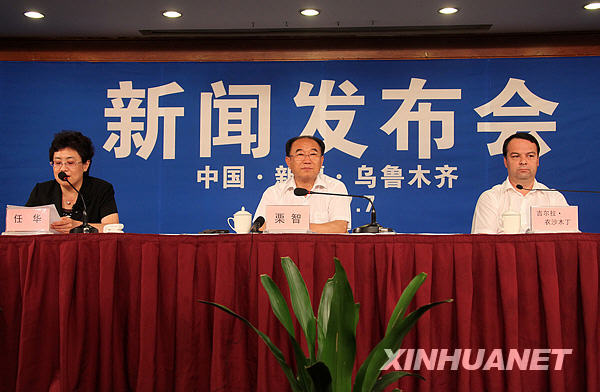The departments of public security and judiciary are now busy identifying the dead left from Sunday's riot in Urumqi, capital of northwest China's Xinjiang Uygur Autonomous Region, Jierla Yishamuding, mayor of the city, said at a press conference on Tuesday.
 |
|
The departments of public security and judiciary are now busy identifying the dead left from Sunday's riot in Urumqi, capital of northwest China's Xinjiang Uygur Autonomous Region, Jierla Yishamuding, mayor of the city, said at a press conference on Tuesday. [Xinhua] |
Sixty overseas news media and 80 Chinese news media organizations attended the press conference.
"The government adopts a much more open attitude toward the media after the incident, compared with that after the March 14 unrest in Tibet and the Sichuan earthquake last year," said Ted Plasker in fluent Chinese. He is a journalist with Economist who has been in China since 1989.
"I saw tight security and very little traffic in the city," said Plasker, who arrived in Urumqi Monday afternoon.
"I have been to the scene and the hospitals. It's horrible to see the people drenched in blood and the shattered shops. Many people who had been attacked told me they did not understand why it happened."
Plasker said he wanted to know why such a violent riot had happened.
"Some places in the city were surrounded by policemen and traffic control could be seen," he said. "But I understand it's for our safety."
Li Zhi, secretary of the Urumqi City Committee of the Communist Party of China (CPC), said at the press conference that Internet was cut in parts of Urumqi following the riot to prevent violence from spreading.
A news center, equipped with more than 50 computers with Internet access, has been open to journalists from both home and abroad since Monday afternoon.
"It would be better if we have Internet everywhere," said Plasker. "But it (the center) is useful."
(Xinhua News Agency July 7, 2009)